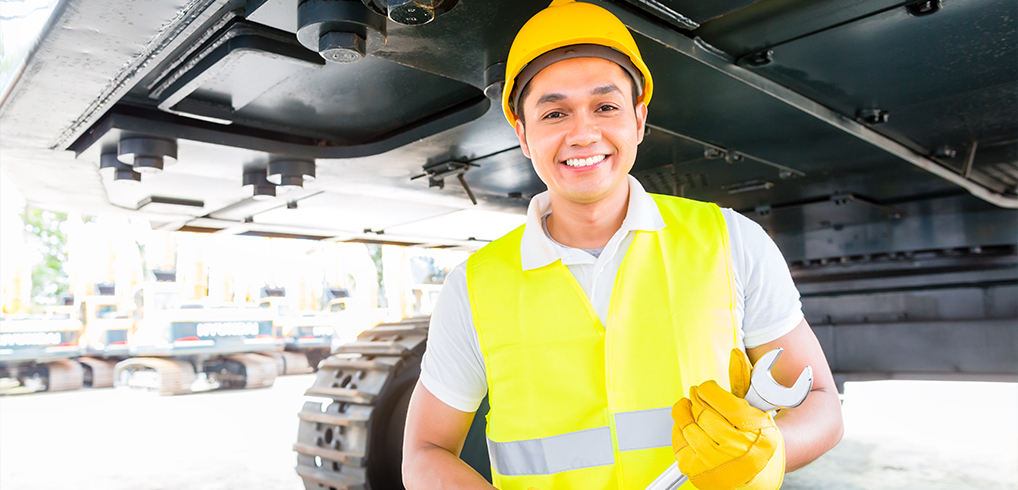
6 Signs Your Heavy Equipment Needs a Battery Replacement

It’s easy to forget the power your equipment’s battery supplies to the machine until there is a problem. The battery doesn’t just allow the engine to function; it also provides power to the entire machine and all the components. If your battery needs to be replaced, you could begin to have issues with your heavy equipment functioning. Here are some of the common signs that your heavy-duty equipment’s battery needs to be replaced.
1. Slow-cranking engine
If you are finding your equipment slow to start, check the Cold Cranking Amps rating. This will give you an indication of the power level that is available to crank your engine. Machines that have less power than usual often need to have a battery replaced to start running at full speed again.
2. Electronic component problems
When your battery is losing power, it can cause disruption with electronic components like windows, locks, and lights. Dimming lights or slow functioning electronic elements are a hint that the battery may need to be replaced.
3. Dead engine
When your engine has difficulty starting after it was sitting overnight or even right after it was turned off, your battery may be near the end of its life. A battery that has been idle for several hours should operate properly. It should also be working normally if the engine has recently been turned off. A machine that won’t start can be a real problem for construction projects. You need your equipment to be reliable. Follow the directions in the user manual to inspect or replace the battery.
4. Accessory drainage
If you have a number of accessories for your heavy-duty equipment, then you may need stronger battery power. Added demands for power can slow down the whole system and use up reserve power.
5. Extreme temperature usage
If you are working in very hot or very cold temperatures, you may need extra-strong battery power to ensure your equipment is able to stand up to the extreme weather. To ensure your equipment starts in very cold weather, install a battery that has the highest CCA available.
6. High vibration environments
Did you know that the life of your battery can be impacted by the strength of vibrations on the worksite? To prolong the life of your equipment’s battery, avoid using it in high-vibration environments or install a heavy-duty one.
Battery Maintenance Tips
Although batteries are often considered maintenance-free components of your equipment, they do need some care to keep them functioning optimally. Here are some tips for battery maintenance.
Keep the surface of your battery clean and dry by wiping away debris and condensation. As well, ensure terminals are clean and tight so that the batteries are able to function and charge properly.
It is essential that equipment operators understand the specific maintenance tips for the type of battery that the equipment uses. Most machines have either a wet cell battery or an AGM model.
Wet Cell Batteries
These batteries have electrolytes that allow a current flow between the two plates in the device. However, when these batteries age or the vent seals don’t properly close, then the plates can become dry. It is not possible to fix this issue, and you’ll notice that the capacity of the battery is not what it once was.
Wet cell batteries can also experience problems if they are overcharged or left in a low-charge state for a long time. Either of these conditions can prohibit proper operation of the battery. It’s best to fully charge batteries often and to do so in a well-ventilated area so any gases produced can be dissipated.
There are three steps to properly recharging wet cell batteries, which can take up to 16 hours to complete:
- Constant current: This step sees about 80 percent of the charge being replaced, and it can be done in the first eight hours.
- Absorption charge: It can take many more hours to get the topping charge complete. It starts when a battery gets to 14.4 volts, and the current from the charge is reduced until the battery reaches 98 percent recharge.
- Float charge: The final part of the charging process sees the voltage reduced to 13.4 and is complete when the battery is 100 percent charged.
AGM Batteries
With AGM batteries, the electrolyte is in a special acid-saturated fibreglass mat. These batteries are sealed in such a way that gassing does not pose a problem. However, they are more expensive, and are more likely to be damaged if overcharged.
Just as with wet cell batteries, there are three steps to follow for the proper recharging of AGM batteries:
- Bulk charging: The charger runs at full voltage until the battery is 80 percent charged.
- Absorption charge: At this point, the voltage will reduce to 14.7 until the battery is 98 percent charged.
- Float charge: The final stage sees the AGM battery reach a 100 percent charge.
Safety
It’s important to note that when you are working on the battery in your equipment, you need to wear the correct protective gear to keep your eyes and hands safe. Additionally, use insulated tools for proper protection. Use the owner’s manual, and follow the steps for battery care and replacement. Equipment manufacturers offer guidelines for handling batteries that can be useful when you need to do work on your machine.
Getting the Right Battery
For heavy equipment, you should use high-quality and heavy-duty batteries to get a reliable source of power. These types of batteries can also have a longer life than other, less powerful ones and should be considered an investment in your equipment.
For more information about taking care of your construction equipment batteries, call Nors Equipment at 888-492-4365 or contact us here.



